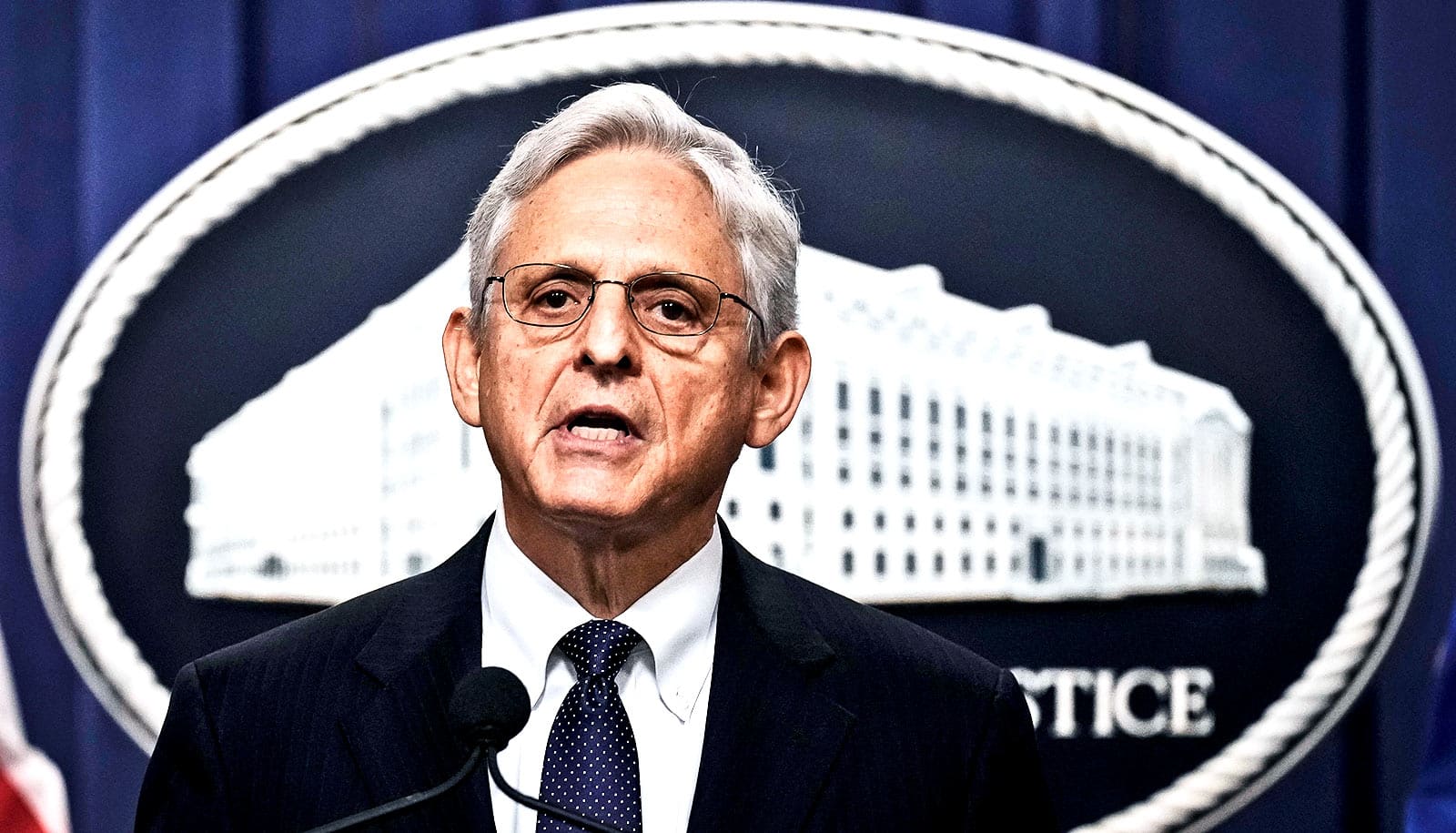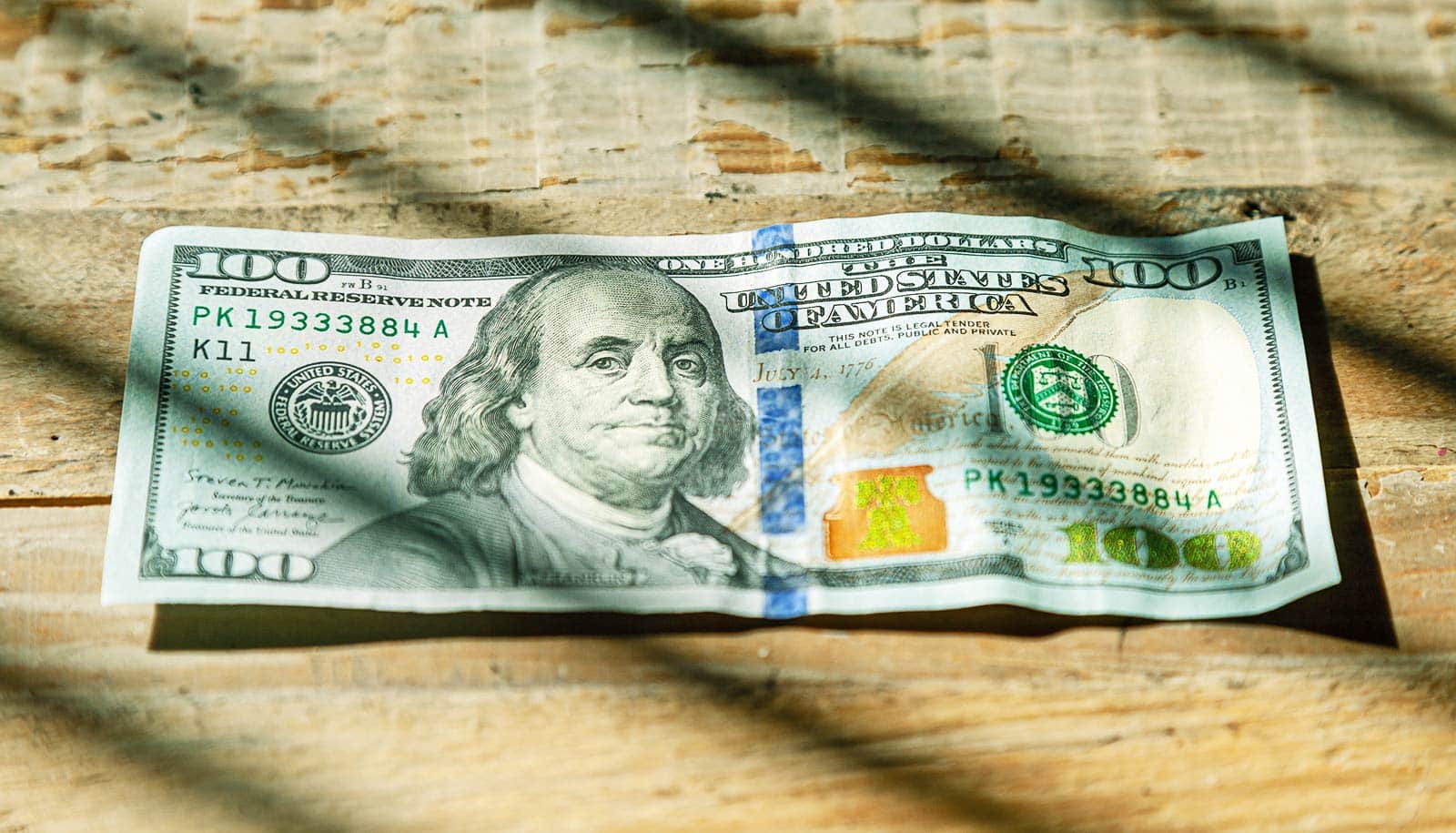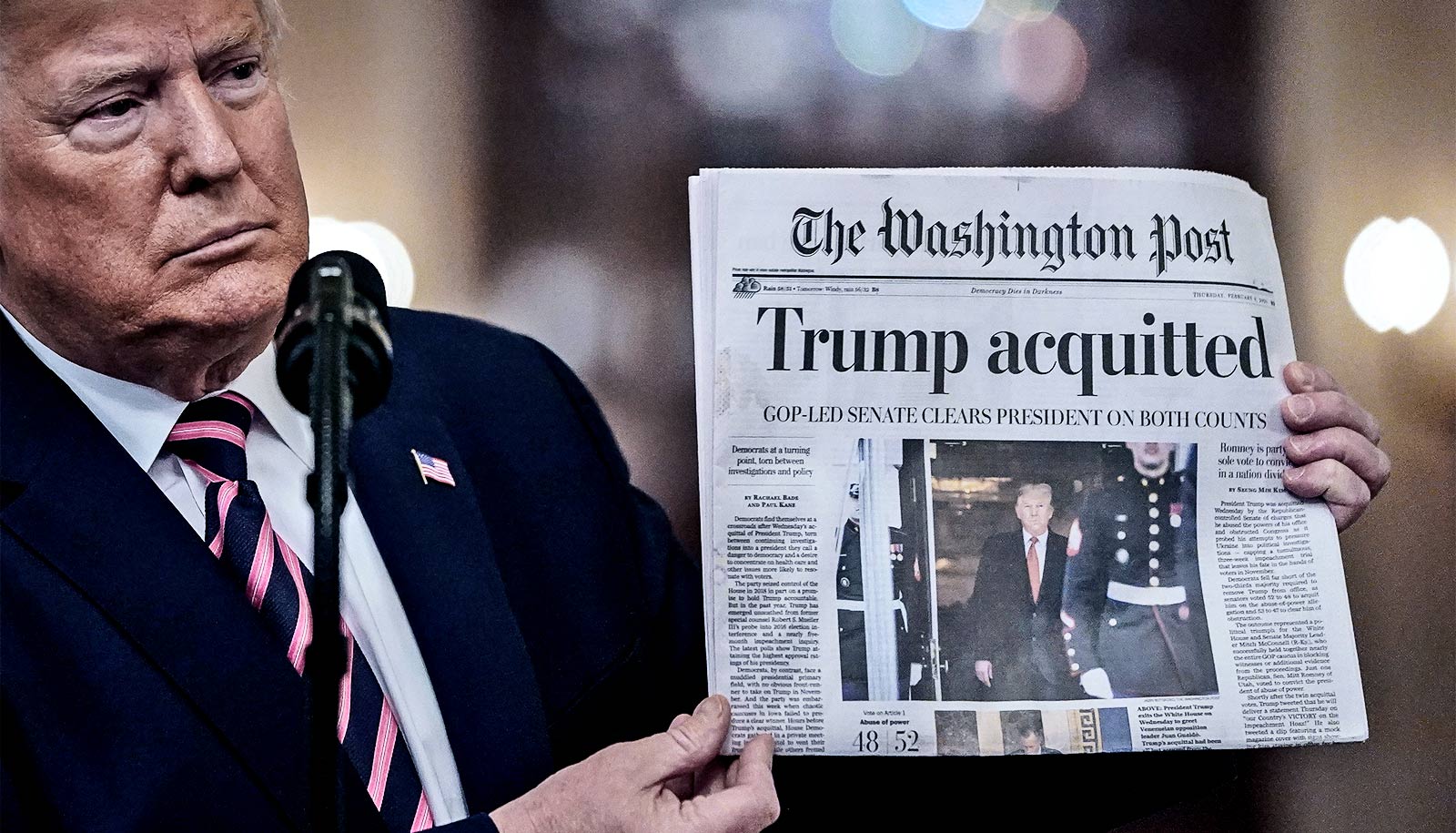A criminal law expert has some answers about Donald Trump’s legal challenges surrounding the FBI search of his Florida residence.
Reports say that the former president took more than 700 pages of classified documents, including some related to the nation’s most covert intelligence operations, to Mar-a-Lago, his private club.
David A. Sklansky, professor of law and faculty co-director of the Stanford University Criminal Justice Center, is a former federal prosecutor. He is the author of A Pattern of Violence: How the Law Classifies Crimes and What It Means for Justice (Harvard University Press, 2021).
Here, he discusses potential charges against Trump and/or the people around him—and what may come next:
Can you walk us through what is going on with these documents? Why is it illegal for Trump to have them?
We don’t know for sure the answer to any of those questions, partly because we don’t know what documents the FBI actually retrieved from Mar-a-Lago. What we do know is that they were executing a search warrant that suggested they had probable cause to believe that evidence would be found for three different crimes.
One crime, the crime that’s created by the 1917 Espionage Act, makes it illegal for somebody to knowingly hold onto information relating to national security, knowing that the information could wind up helping America’s enemies and hurting the United States.
Another relates to a separate federal statute that makes it a felony to willfully remove documents from a public office without authorization, whether or not they have anything to do with the national defense.
The warrant also suggested that the agents were looking for evidence of obstruction of justice, specifically altering or destroying records in order to frustrate an investigation or a legal proceeding, which suggests that they had some reason to believe that someone at Mar-a-Lago might have been destroying records or altering records to cover up the fact that documents that Trump wasn’t supposed to have were still in his possession in Mar-a-Lago.
And if it’s illegal, why did it take so long for the FBI to execute a search warrant to get them?
Again, we don’t know for sure, but my guess is that it’s because the normal approach of the Department of Justice, in any case where there’s an allegation that somebody’s taken documents that they shouldn’t have taken, is to first arrange for a voluntary return of those documents.
There’s some indication that there were ongoing negotiations between the Justice Department and Trump and his people in Mar-a-Lago to arrange return of documents that he wasn’t supposed to have. The search apparently was motivated by the realization on the part of the Department of Justice that that process wasn’t operating in a satisfactory way.
Regarding number three, is destroying evidence related to the fact that he planned on keeping these documents? Or could it be there’s something else in those documents that he destroyed—evidence with respect to some other crimes or some other things that have gone on?
Almost certainly it’s the first. We don’t know for sure, but it’s very likely that what motivated the inclusion of that third crime was that there was some reason to believe that records had been altered in order to cover up the fact that Trump had records that he wasn’t supposed to have.
In fact, they probably are not the records that were taken from the White House. They could be, for example, videos that were taken at Mar-a-Lago because apparently there are security cameras around Mar-a-Lago and the Justice Department was reviewing the tapes to see what was going in or out of the room where the documents were held. It’s possible though that the government may also think that some of the documents that were taken from the White House were altered so that it wouldn’t be clear that they were taken from the White House.
One of the things that we’ve heard in defense of Trump’s retention of the records is that he could have declassified everything anyway. In that case, he could have taken everything and kept them forever with impunity.
Yeah, that’s completely wrong, because none of the crimes that are alleged in the search warrant affidavit hinge on the documents being classified. So, declassifying them would not remove the illegality of taking them without authorization from the White House or holding onto them when there was reason to believe they could damage the national security, or altering records to hide the fact that he had taken them without authorization.
So, there are a lot of theories swirling around now about these documents. Charge number one, that they might threaten national security in some way, gives rise to speculation on the part of Trump’s detractors that these documents contained national security secrets that he might have been providing to other people who weren’t supposed to have them and might even sell national secrets.
Is that necessarily what the first charge means?
That’s not necessarily what the first charge means. It could simply mean that there is sensitive information in these documents and the documents were being held in Mar-a-Lago in a location that made them vulnerable to being seen or taken by other people without authorization.
Mar-a-Lago is also this private club where people pay a lot of money to go and hang out. So, the first charge is not necessarily about fears that Trump would sell the information or give it to somebody else. It could simply be that he was holding onto sensitive documents in a place where it wasn’t secure.
Let’s talk about motive. Trump, when he was president, had access to all the secret documents he wanted. So why take boxes and boxes of stuff back home after January 2021?
I’m not a psychologist, but we’re all kind of amateur Trump watchers at this point, and my guess is that it’s not so much that he wanted the documents. It’s that he didn’t like the idea that he had to give them back. There have been reports that he said, “These are mine.”
But I think it’s important to keep in mind that Trump is not the only person who may have been committing crimes here. I don’t know who else is down there at Mar-a-Lago, that Trump wasn’t and isn’t the only person who’s been handling these documents or dealing with the people from the Department of Justice who are trying to get them back.
Someone else, in theory, could have a more understandable motive, although we can’t even imagine what that will be either.
Yeah, that’s true. But what does seem reasonably clear is that the Department of Justice believes, and convinced a magistrate judge that there’s probable cause to believe, that somebody at Mar-a-Lago is holding onto documents that are not supposed to be there, and that either can endanger the national security, or were willfully removed from a public office in the White House, or that somebody down in Mar-a-Lago has been altering records to obstruct an investigation into whether documents have been taken from the White House and improperly held at Mar-a-Lago.
What happens next? Now that the documents are seized, take us through from a prosecutor’s perspective what the next steps are.
Trump’s lawyers have asked a judge to appoint a special master to go through all of the material that was obtained before the Department of Justice looks at it to make sure that there was nothing taken that the Department of Justice shouldn’t be able to see.
I think that motion is probably going to fail, because I don’t think that Trump’s lawyers have any good argument for why a special master is needed in this situation. But if it succeeds, that will delay the process, because a special master will have to be appointed. That person will have to go through the material before the Department of Justice looks through it.
If the special master isn’t appointed, then the Department of Justice can continue reviewing the material. They’re going to look to see whether they have uncovered not just documents that don’t belong in Mar-a-Lago, but evidence, either in those documents or somewhere else, that Trump or somebody else was holding onto documents criminally, that is with a criminal intent, or altered records to obstruct the investigation into the removal of documents from the White House.
When you say criminal intent, what would a criminal intent be?
All the statutes that were charged in the search warrant require that, in order to violate them, somebody has to act willfully, which normally means that they have some kind of improper intent, that it’s not just an honest mistake.
If the documents are what they’re supposed to be, then that would look bad, I would think, for Trump.
What the Department of Justice will be looking for, in addition to trying to retrieve documents that shouldn’t be there, is whether there’s reason to believe that Trump or somebody else didn’t just mistakenly hold onto these documents but held onto documents knowing that these were documents that they were not allowed to have, that the possession of which violated these criminal statutes. Or that somebody at Mar-a-Lago, Trump or somebody else, altered records, either the records taken from the White House, or for example, video records at Mar-a-Lago to cover up the fact that documents were not being returned.
But while it looks bad, it’s possible, of course, that Trump and his staff overlooked some documents that they should have returned, or mistakenly believed that documents fell outside the category of documents that needed to be returned. So, even though Trump and his people were dealing with the Department of Justice, it’s possible that Trump or somebody else could have been holding onto documents without criminal intent.
What are the kind of things that a prosecutor would think about when they’re prosecuting, not just a former president of the United States, but this particular former president?
Well, it would be different. I think there would be an interest on both sides to resolve any criminal charge without a trial. On the part of the government, a trial involving a former president, and particularly a former president like Donald Trump, would be unpredictable and difficult to manage in all kinds of respects.
Would Trump want to go to trial?
From Trump’s perspective, a trial would also be undesirable, because in a trial, you don’t get to talk whenever you want. The judge is in charge, and the lawyers are in charge, and that’s not the kind of environment that Trump is going to want to be in. It’s an environment that he’s avoided in other legal proceedings that he’s been entangled in, so I doubt there would be a trial, even if there was a legal charge here.
If they can’t agree and there is a trial, where would the jury pool be for a trial like that? Where would it be held, do you think?
Well, it would depend. It could be in Washington, DC where the documents were removed, or it could be in Florida where the documents were being held. Either way, there would be a lengthy process of identifying jurors who could be impartial. Many, many potential jurors would be weeded out. It would take a while to get a group of 12 people that seem like they could approach the case objectively and fairly. There would be lots of arguments about what kinds of issues can be raised in the trial, and what kinds of issues are off limits. There’d be a lot of proceedings before we got to a jury, and then outside the jury’s presence. Other than that, it would look like a lot of other trials.
The prosecution would call witnesses to try to prove its case. The defense might or might not call its own witnesses. Trump’s initial instinct would be to make the trial about the government’s misconduct. That would almost certainly be shut down so the defense would wind up trying to argue that there was no criminal intent here.
We hear about things like jury nullification where the jury says, “I don’t care what you’re proving. I’m not going to do something.”
Yeah, it’s always possible. You can’t force a jury to return a guilty verdict so if the jury decided that this was just a stupid crime to charge and it really wasn’t that serious, there’s always the chance that the jury would just acquit on that basis.
It’s hard to know how much of a risk that would be for the government without knowing more about the documents and without knowing more about how egregious the conduct was that led the government to conclude that they needed to go in with a search warrant instead of continuing the negotiations that they had been pursuing.
I’m just wondering about selecting this jury. Given what we know about the polarization of the country and the number, how are you going to find anyone on a jury who doesn’t have a strong opinion about Donald Trump?
Well, you don’t have to find jurors who lack a strong opinion. You just have to find jurors who can be fair and open minded, and it’s more of a challenge here than it is in many criminal cases.
On the other hand, there are lots of criminal trials that happen with famous people about whom many people have opinions. Courts have lots of experience selecting jurors and instructing them in the duty to be impartial and to put aside any preconceptions that they have, and this trial, if there is a trial, will not be about are Republicans better than Democrats. It won’t be about how good a person is Donald Trump. It’ll be about whether Trump or whoever else winds up getting charged violated a specific criminal statute by satisfying the elements of a particular crime.
It’s true that the country is polarized. It’s true that a lot of our discussion is poisoned and poisonous, but I think that it’s doable to have a trial. That is what the law of evidence and the procedure of trials have been developed over decades and centuries to do—precisely as a way of bringing people together and having them reason together about the facts.
So as much as the government would want to settle this case if there is a charge, my guess is that from a game theoretic perspective, the party that would be most interested in settling this is Trump.
Source: Stanford University



